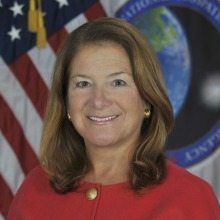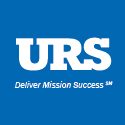
It has been almost three years since Letitia (Tish) Long was appointed Director of the National Geospatial-Intelligence Agency (NGA) in August 2010. We caught up with Long to reflect on the changing role of NGA within the broader Intelligence Community (IC), asked her to share her best advice for young intel officers, and received her view on developing a strong Science, Technology, Engineering and Mathematics (STEM) workforce. Long also highlighted big data, activity based intelligence and the future of the NGA.
Long first entered the Intelligence Community (IC) in 1988, where she joined the Office of the Director of Naval Intelligence. She then worked at a variety of organizations, including the Office of Naval Intelligence, as Director of Requirements, Plans, Policy and Programs and Director of Resource Management, later joining the Defense Intelligence Agency (DIA) to become its first Chief Information Officer (CIO).
WashingtonExec: Did you always know you wanted to work in the Intelligence Community (IC)?
Tish Long: Growing up I knew that I wanted to be in public service—in the national security arena. My father’s career was in the Intelligence Community (IC), as were three of my brothers. So, I had some very direct role models. As I went off to school for engineering, I knew I wanted whatever I was involved in to allow me to have an impact on our nation and the security of our nation. It was actually a very easy decision for me when I was offered a position with the Navy. I was building intelligence collection systems for submarines and I just continued to progress through the Intelligence Community. Did I have my sights set on being the Director of the National Geospatial-Intelligence Agency? That wasn’t in any plan that I had. I just knew that I wanted to keep working in jobs that challenged me and that I had the ability to contribute. That’s really what motivates me – the mission at the end of the day.
WashingtonExec: What words of wisdom did you receive from your peers and mentors when you were appointed Director of the NGA?
Tish Long: I think the best advice that I’ve received, which is something that I’ve had reinforced throughout my career, is: ‘ask questions and listen’. Talk to your customers; ask what’s working, what’s not working and talk to your people — your employees. What would they change if they were in charge? Most importantly: listen, really hear the answer, and keep an open mind.
WashingtonExec: The term “big data” is nothing new. What would you say are the biggest issues impacting big data initiatives at NGA and in the IC?
Tish Long: First of all, I agree with you that the term big data is nothing new. I will tell you however that the ‘big’ in ‘big data’ is changing as we develop new sensors that collect more than we have ever collected before, as we integrate more open source information and more human geography information. The challenge is sifting through all of that information and training machines so that they serve up the most relevant information for our analysts to analyze. I don’t want our analysts to spend time searching for information. I want to take advantage of computers and technology to serve up the information that we need to be focused on. That means that we need to develop algorithms to vector machines in the right direction so that our analysts will be freed up to do the deeper analysis of geospatial intelligence. I would also add that all of the intelligence disciplines are gathering more and more information and are now asking ‘how do we integrate that information’? That’s another big data challenge and one that we are tackling head on.
WashingtonExec: Do you regard the issue of dark data or untapped data a current issue for NGA?
Tish Long: Certainly untapped data or even data that we use today for a certain reason we might use tomorrow for something else. We might need to look at it from a different perspective or look at it in a different way. As I mentioned previously, there is so much data out there, and we don’t look at it all. That’s ok. We might not need it for the particular problems that we are working on for today but we might go back to it tomorrow because we are looking at a new issue or a new problem set. It is very important.
WashingtonExec: Is there anything else you would like to mention?
Tish Long: I talked about characterizing big data so that we could have the machines do more of the basic work to free up our analysts to do more of the advanced work. One of the ways we are doing that is through a methodology that we refer to as activity based intelligence, or ABI.
Everyone and everything is somewhere on the face of the earth at a place in time; it is interesting and necessary to know that, but not sufficient. Where was the person yesterday or where was the thing that we are looking at? If it’s a tank, an airplane or a person – where will it be tomorrow? Why is it there? What is the context within which something is happening? That is what we are spending time trying to characterize. It’s the activity associated with the issue that is often just as important because that helps us to anticipate what might happen next and of course why it is happening. At the end of the day that gives our customers time to make decisions.
__________________________________________________________________________________________________
“I talked about characterizing big data so that we could have the machines do more of the basic work to free up our analysts to do more of the advanced work. One of the ways we are doing that is through a methodology that we refer to as activity based intelligence, or ABI.”
__________________________________________________________________________________________________
WashingtonExec: Do you regard the lack of young people graduating with STEM (Science, Technology, Engineering and Mathematics) degrees as a national security issue?
Tish Long: I absolutely do. This is not just an educational issue. This is not an issue that we can compartmentalize. It is a national security issue. We simply don’t have the number of young professionals graduating from colleges and universities today focusing on the science, technology, engineering and mathematics professions needed. That is a fact. If we are going to keep up with the rest of the world we need that expertise that can design and develop the next smartphone, the next geospatial information system and the next set of algorithms. How are we going to go to Mars? How are we going to keep up if we’re not graduating young professionals? It’s a very challenging time that we are living in both from a world view perspective, from a security perspective, from an economic and from a technology perspective.
NGA has a very strong program called Partnerships in Education where we have outreach at the elementary school, middle school and high school levels. We hire college interns to introduce them to geospatial informational systems and educate them on how it is increasingly integrated with our day-to-day lives. Can you think of a day that you don’t hop on the internet to look for a set of directions or look for a way of arraying data in a geospatial context that helps you to understand it better?
Our current and next generations need STEM understanding and it absolutely is a national security issue. A full court initiative at the national level is needed to address this.
WashingtonExec: If you could step into any other profession for a day what would it be and why?
Tish Long: I’ve thought about this for a long time and I would have to tell you that it would be the same profession. As I mentioned when we started I made a conscious decision to work in public service in the national security sector. It is the mission that motivates me and I can’t imagine doing anything else. If you were to ask the question ‘if I had to do it all over again what would I do differently’. I’m not sure I would do anything differently.
WashingtonExec: Looking back on your career what do you think has been the most valuable lesson that you have learned that you would share with others?
Tish Long: Ask probing questions. From a career development standpoint – stretching. Taking that next job that you are not sure you are absolutely ready for. If you are completely ready, it is probably not the job for you. You are going to be bored. You are not going to develop.


